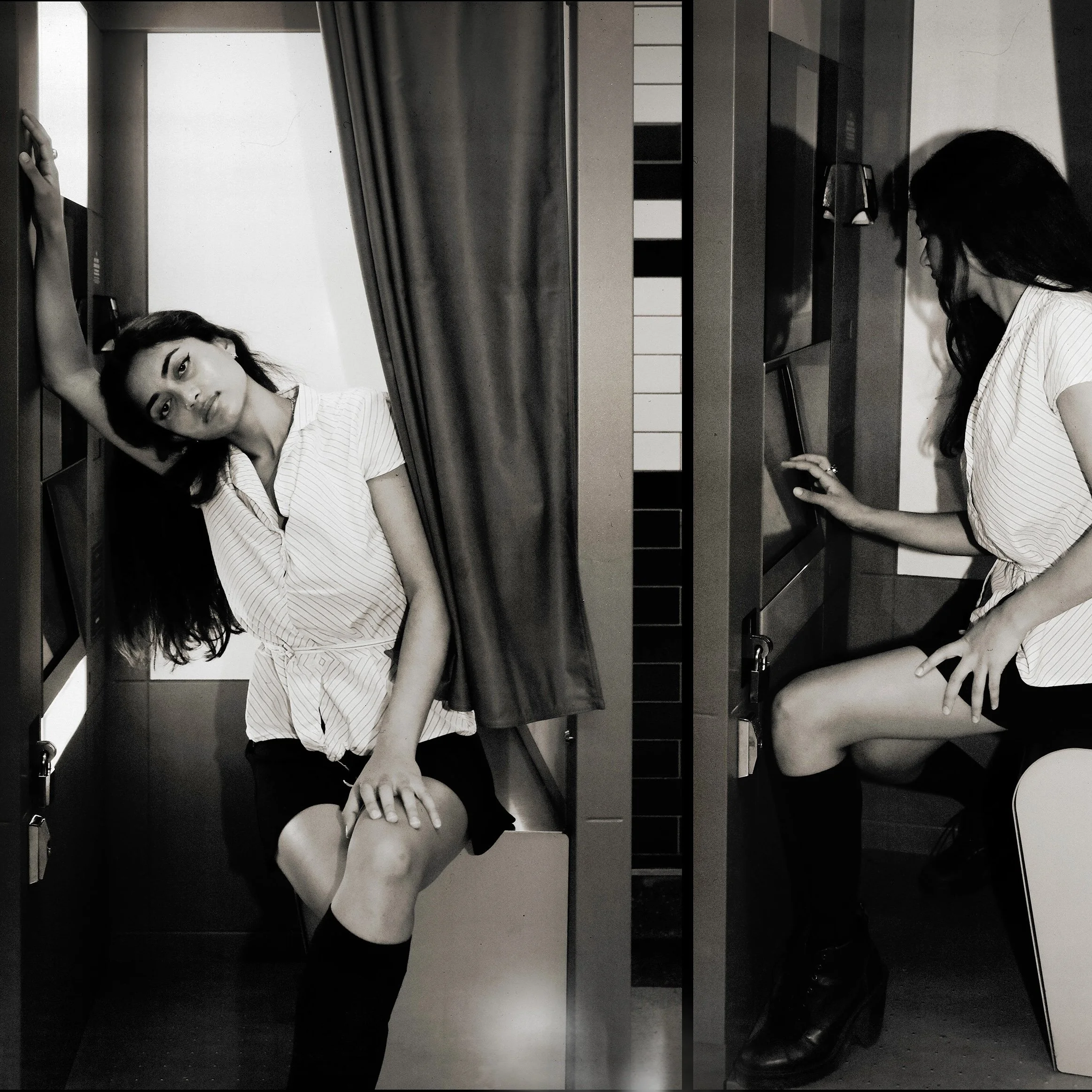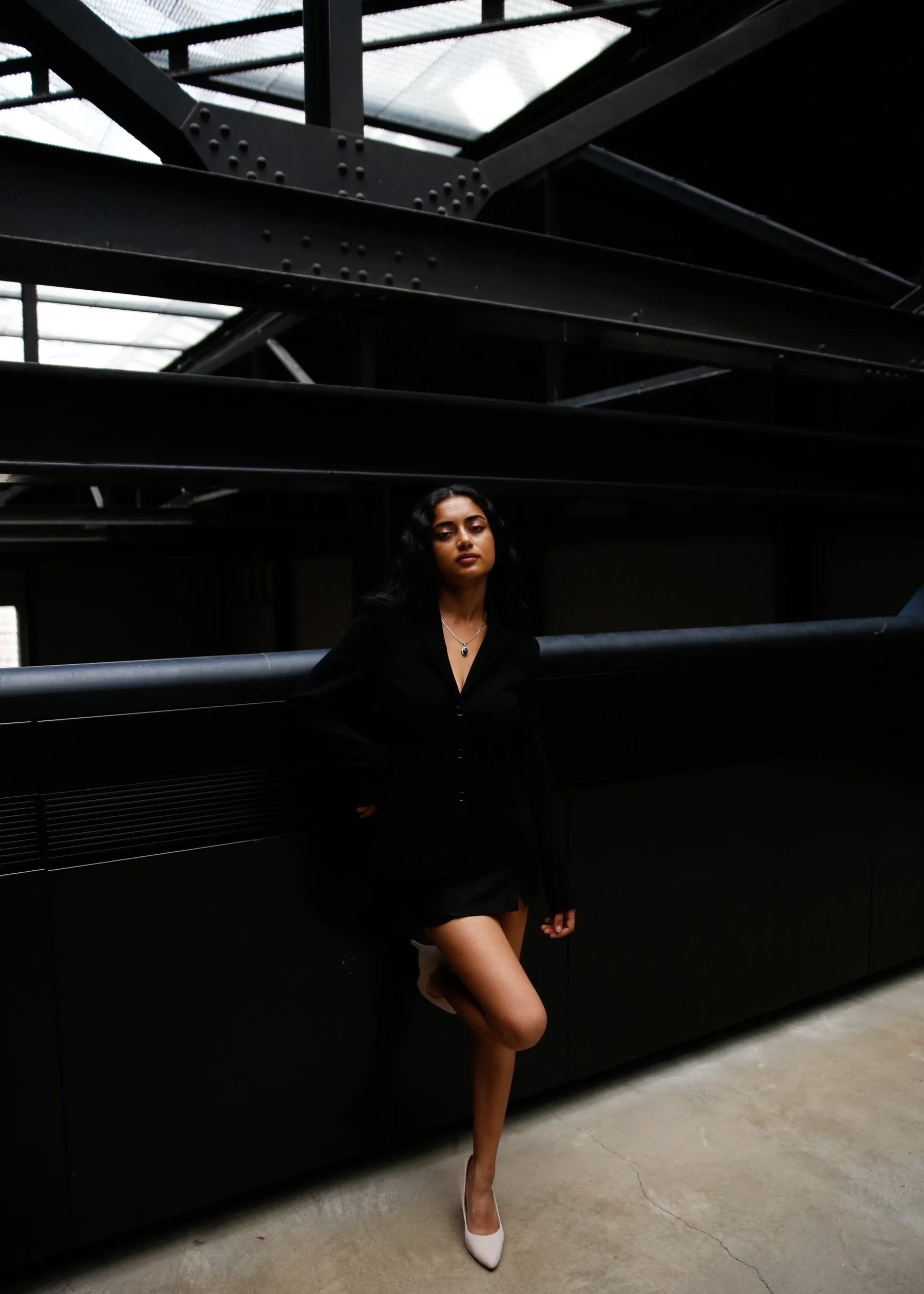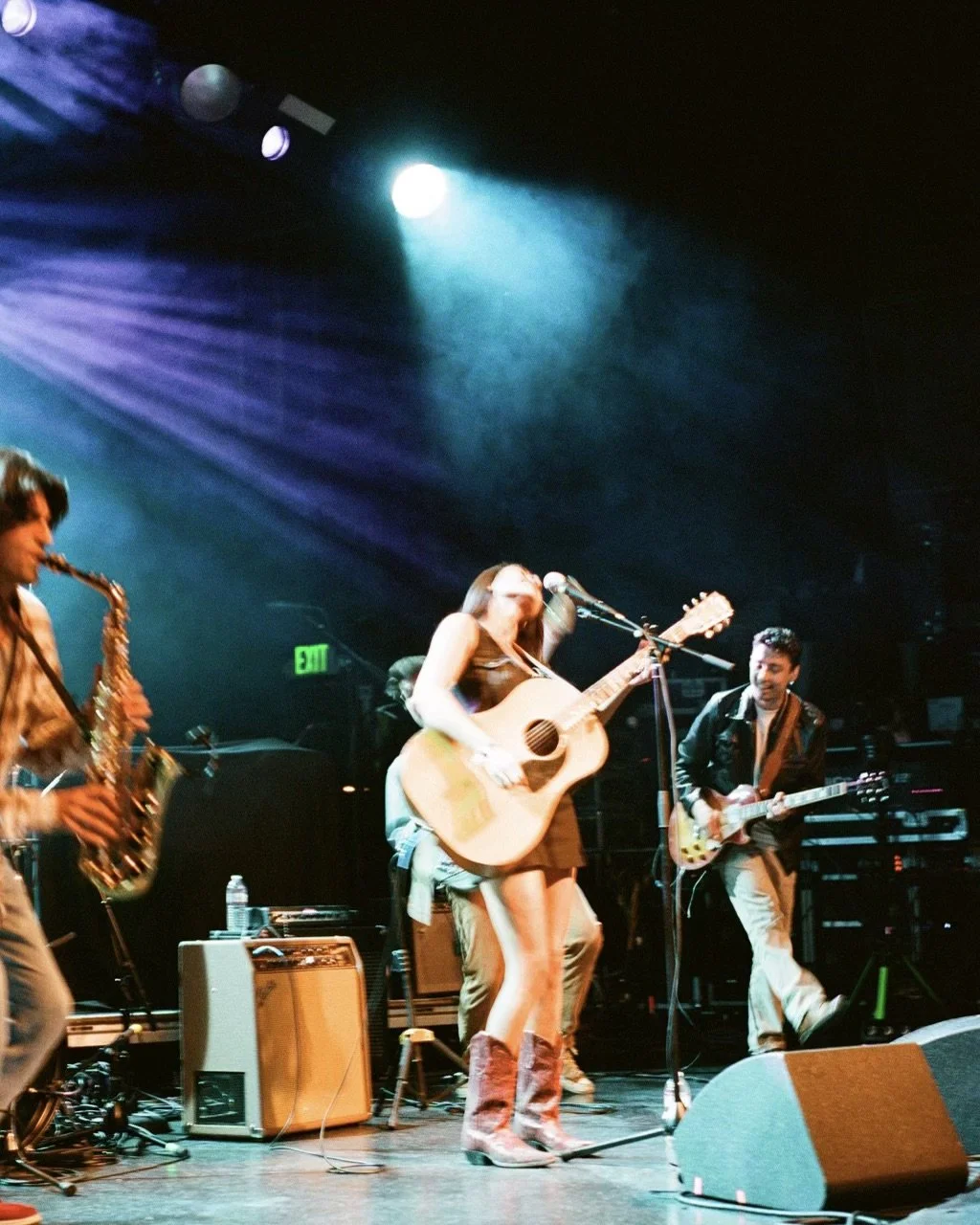Q&A: EASHA’s “Both of Us” is a Mantra for Letting Go
INTERVIEW
INTERVIEW
☆ BY SHEVON GREENE ☆
EASHA BRINGS OLIVIA RODRIGO’S STING — Hozier’s soul, and a Stanford intellect to her emotionally-charged alt-pop. With a sharp blend of emotional intelligence, biting wit, and genre-fluid sound, she’s built a loyal fanbase, and she has no plans of slowing down.
Her new single, “Both of Us,” is the emotional centerpiece of her upcoming EP, unpacking the weight of unbalanced relationships and the toll of carrying love alone. The production, crafted with Saam Jafarzadeh and Scott Robinson, is a powerful balance between soul, sass, and sadness—all while keeping emotional catharsis front and center.
EASHA describes the EP as a whirlwind of chaotic flirtation, painful clarity, and quiet unraveling, charting the arc of a relationship that moves too fast and burns too bright. Her multifaceted background as an elite triathlete and Stanford grad weaves its own way into her music, enriching her lyrical depth and emotional reach.
We chatted with EASHA about closure (or the lack of it), the intersection of humor and heartbreak, and how life experience seeps into her sound. Read below to learn more about the making of “Both of Us” and what’s next on her journey.
LUNA: “Both of Us” captures that bittersweet moment of realizing you’ve been more invested than the other person. What sparked the writing of this song?
EASHA: I grew up with this doctrine of “intention over impact” and seeing the good in everyone. I am also a long standing high achiever. So, when I first interacted with the “real world,” it would manifest into these naive relationships, where even though I saw myself as a strong person, I was taking a lot of sh*t. I thought I could fix the relationship or be better, but especially with men, I learned that if there isn’t that accountability on their end, you have to step away and ask yourself, “Does this have anything to do with me or is this a journey they’re going to have to take themself?” There was this theme of releasing responsibility that kept coming up, so “I can’t love you for the both of us” felt fitting as a mantra.
LUNA: There’s a blend of soul, sass and sadness in the production. Can you walk me through how that sound came together with Saam Jafarzadeh and Scott Robinson?
EASHA: Wow, I love that. Soul, sass, and sadness. Approaching production, I always come in with an idea of what I want, and then it’s a matter of communicating it precisely. My reference tracks were a mix of indie rock, bluesy, pop songs. I wrote the song on acoustic guitar, Saam built out the instrumentation, and Scott really helped me channel the emotion in my vocals. I'm a notorious rewriter, and they were endlessly patient with me.
LUNA: Who were you listening to while making “Both of Us”? Any artists or songs that helped you channel that Olivia Rodrigo-meets-Hozier energy?
EASHA: I was listening to a lot of The Neighborhood, Hozier, The Rolling Stones … in general songs with energy, aggression, and depth.
LUNA: There’s this bite to the production, especially in the guitar, that adds such an attitude to the sadness. How important was it for you to let the production carry some of that emotional complexity?
EASHA: I would say it’s essential that the production carries the unspoken attitude of the song. For example, if we did it acoustically, it would sound defeated and heartbroken. With the biting guitar, you also get a sense of that resentment and aggression that overflows when you’ve bit your tongue for too long. Saam, the producer, also lives in England—I’ve noticed the British love their edge.
LUNA: This song feels like a letter you never sent. Did writing it feel more like closure, catharsis, or something else?
EASHA: It’s funny, because I wrote this song a while back, but the way Scott works with vocals is he’ll open you up about an experience that relates to the track, a recent memory where you felt like you were carrying the relationship, almost like therapy, and it cracks open all of these repressed feelings. Immediately after he was like, “Now shut up and sing!” and we nailed that feeling in the vocal delivery. It definitely was a release of energy when I released the song and was promoting it. But. at the same time, it opened up a lot of old wounds. I don’t know if I could feel closure because there’s no right answer on how to end something you cared about, but it did feel cathartic.
LUNA: You describe your sound as a dreamy soundtrack of melancholy. What draws you to that emotional space in your music?
EASHA: Trauma dumping is bad, apparently. And my voice is good, apparently. So I do music.
LUNA: How has your classical Indian musical background shaped your songwriting or vocal style today, especially in a genre like alt-pop?
EASHA: Indian classical music works with microtones, so in my songwriting, it translates as weirdness that works. Whether it’s a harmony reminiscent of R&B, or a production element that I heard from a foreign track, nothing is off limits.
LUNA: You’ve worked with Liz Rose and have been praised for your lyricism. What’s your process when you sit down to write? Melody first or lyrics?
EASHA: Melody is king for me. If I can’t hum the hook after the session or remember what I wrote the next day, then it’s no bueno. But lyrics are what I pride myself on. It’s usually born from a line that’s poetic or real, and from there I’m like an archeologist digging up the rest of the song.
LUNA: Your lyrics feel like coming-of-age poetry. Are there specific experiences or themes you’re always returning to when writing?
EASHA: I am adventurous and a thought daughter—it tends to oscillate between those two.
LUNA: From playing Philly clubs to stages like World Cafe Live, how has your relationship with live performance evolved over time?
EASHA: I’m always trying to grow and make the show better than it was before, but since I was young, the stage is where I feel the most me and free. It doesn’t matter what’s happening in the world or in my life, live performances are an elevated moment in time where you are fully in your body and exchanging energy with the crowd. Also, applause is my kryptonite. It’s still as cool as it was when I was a kid.
LUNA: You’ve balanced being an elite triathlete, a Stanford grad, and a full-time artist. Does that multifaceted life seep into your music, or do you try to keep those worlds separate?
EASHA: I think a multifaceted life seeps into the music - it’s like you’re building a character and a life that you find interesting, and then the art is an extension and expression of that. Sports give me mental clarity and get me into a flow state, not to mention the natural beauty you witness through triathlons - Swiss alps, highways that stretch for miles, exotic bugs that will inevitably fly into your mouth while biking … Stanford was another level of intellectually stimulating. People were sharp. That playpen to think and dream big was special. And now that I’m in music full time, those life experiences, stories, and confidence keep me grounded.
LUNA: You’ve built a really loyal fanbase online. How do you approach storytelling differently on social media versus in your songwriting?
EASHA: Social media lends itself towards my humor. I’m more authentic and less critical of my work online, because the way I see it, I’m simply experimenting and trying stuff out to have a conversation with the fans. The music feels more permanent because I’m singing these songs night after night, so it has to mean something or manifest something greater than myself.
LUNA: What does the release of “Both of Us” represent for you right now, musically or personally?
EASHA: I think it’s a stepping stone on the upcoming EP. The concept of the EP are these whirlwind, stormy relationships where it feels like everything is happening all at once. In “xoxo” it’s a “whirlwind international rapture” which is fun and flirty. Next, “Nashville Novembers” is “the start of the end.” And finally, “Both of Us” is this breaking point realization that not only do you have to leave a relationship, but you have to let go of this baggage you’ve been carrying all by yourself.
LUNA: Can fans expect more singles or a bigger project coming soon? What’s next on the horizon for you?
EASHA: Always expect everything from me! This is my dream. It’s what I would do even if nobody was listening. But I’m grateful people are, so they should stay tuned for more singles into the upcoming EP this year.



